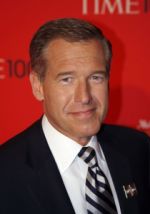
Previously published at WGBHNews.org.
Tucker Carlson may have finally hit bottom. Then again, maybe not. If Fox News fails to act after Carlson was exposed over the weekend for making insanely misogynist comments on a low-rent radio show between 2006 and 2011, then he will probably continue on his merry way, indulging in sexism and racism on what might be the worst prime-time program on cable news.
A brief synopsis. During the period in question, Carlson made weekly on-air calls to a show hosted by Bubba the Love Sponge, whose name you may vaguely recall from Hulk Hogan’s successful lawsuit against Gawker Media. Mrs. Sponge, as we shall call Bubba’s ex-wife, was videotaped having sex with Hogan, and Gawker published it. That, in turn, led to the demise of Gawker at the hands of Hogan’s lawyer and his secret financier, the tech entrepreneur Peter Thiel, who had his own axe to grind against the company.
Anyway, Carlson’s appearances on Bubba’s show were sort of like his Fox News program, only cruder and much more disturbing. Madeline Peltz of Media Matters for America, a liberal media-watch organization, has gone through many hours of audio in which Carlson defended statutory rape, used the C-word, and, as Peltz put it, “called journalist Arianna Huffington a ‘pig,’ and labeled Britney Spears and Paris Hilton ‘the biggest white whores in America.’ He also said that women enjoy being told to ‘be quiet and kind of do what you’re told’ and that they are ‘extremely primitive.’” The story includes audio clips and extensive transcripts. Carlson doesn’t deny it. More was posted Monday night, with the new cache consisting of what Media Matters calls “white nationalist rhetoric” and “racist remarks.”
The revelations about Carlson were the worst news for Fox News in, oh, about a week. Last week brought us Jane Mayer’s New Yorker story detailing the multifarious ways in which Fox now functions as President Trump’s chief propaganda arm, as well as weekend host Jeanine Pirro’s assertion that U.S. Rep. Ilhan Omar’s hijab is somehow a violation of the Constitution. (Fox condemned those remarks.)
Now, forgive me for taking a detour, because I want to talk about an earlier, better version of Tucker Carlson. To my mind, one of the stranger and more disheartening developments in conservative media in recent years has been Carlson’s devolution from a stylish writer of smart magazine pieces to a ranting racist and misogynist.
My first exposure to Carlson came in September 1995, when The Weekly Standard, a conservative magazine founded by Bill Kristol and funded by Rupert Murdoch, made its debut. Back then I was the media columnist for The Boston Phoenix. I took a look at the Standard’s first issue and pronounced most of it to be a snooze. The exception was an amusing piece by Carlson, who contacted various celebrities about a petition they’d signed calling for a new trial for Mumia Abu-Jamal, then facing the death penalty after he was convicted of murdering a police officer. Carlson innocently asked his targets what they actually knew about the case, which turned out to be not much.
After that, Carlson was someone I checked in with from time to time. I admired a long profile he wrote for Tina Brown’s Talk magazine of then-presidential candidate George W. Bush, whom he depicted as cruelly mocking Karla Faye Tucker, a murderer and born-again Christian he’d sent to her death when he was governor of Texas. On one of my visits to Washington around the same time, Carlson took me to lunch at The Palm. He was utterly charming. The only disconcerting note was when he genially berated me for not keeping a gun at home in order to protect my family.
I should add that many people have had similar experiences with Carlson. Last fall Lyz Lenz wrote a long profile of Carlson for the Columbia Journalism Review in which she quoted a number of editors and others who worked with Carlson back in the day and who can’t believe how far he’s fallen — fallen being a term of art, of course, given that he’s never been more prominent or highly compensated than he is right now.
“What happened to Tucker Carlson?,” Lenz wrote. “People in media ask themselves this question with the same pearl-clutching, righteous tone they use when discussing their aunt in Connecticut who voted for Trump.”
Sadly, the answer to Lenz’s question is obvious enough. Late last year The Weekly Standard died — or, rather, was killed by its last owner, Philip Anschutz. In its final incarnation the Standard had established itself as an outlet for principled conservatism that was usually (though not always) harshly critical of Trump and Trumpism. Kristol, a leading voice of the #NeverTrump right, as well as several like-minded conservatives, have gone off to found projects such as The Bulwark (which preceded the Standard’s closing) and a yet-to-be-named venture announced by Jonah Goldberg and Stephen Hayes. Anschutz is now lavishing attention and money on another property he owns, the pro-Trump Washington Examiner.
Meanwhile Carlson, whose intellectual traveling companions were once thinking conservatives like Kristol and John Podhoretz, is now mentioned in the same breath as Trump toadies such as Sean Hannity and Laura Ingraham. It’s a matter of prosperity over principle. Too bad one of the most gifted journalists of his generation turned out to be nothing but a cheap hustler.
Research assistance was provided by Northeastern University student Caroline Hanlon.
Talk about this post on Facebook.






